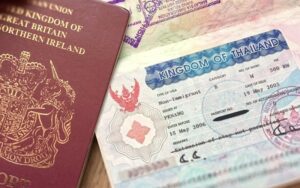Property title transfer in Thailand is a legally regulated process that formalizes the change of ownership of land or condominium units. Unlike informal property transactions in some jurisdictions, ownership of immovable property in Thailand is legally recognized only when the transfer is registered with the Land Office. Understanding the procedures, legal requirements, and potential risks involved in title transfer is essential for buyers, sellers, and investors to ensure a secure and enforceable transaction.
Legal Basis for Property Title Transfer
Property ownership and title transfer in Thailand are governed primarily by the Civil and Commercial Code (CCC) and regulations issued by the Land Department. Under Thai law, a sale of immovable property is not legally complete until it is registered at the relevant Land Office. Even if a sale and purchase agreement has been signed and payment made, ownership does not legally change hands until registration is completed.
This legal framework underscores the importance of proper documentation and compliance with Land Office procedures.
Types of Property Eligible for Title Transfer
Property title transfer in Thailand applies mainly to two categories:
-
Land and houses, where ownership is evidenced by a land title deed
-
Condominium units, where ownership is registered under the Condominium Act
The most secure form of land ownership is held under a Chanote (Nor Sor 4 Jor) title deed, which allows full ownership rights and precise boundary definition. Other titles, such as Nor Sor 3 Gor or Nor Sor 3, may also be transferable but require additional verification.
Pre-Transfer Due Diligence
Before proceeding with title transfer, proper due diligence must be conducted. This includes verifying the authenticity of the title deed, confirming the seller’s legal ownership, and identifying any encumbrances such as mortgages, liens, usufructs, or leases.
Due diligence also involves ensuring that the property is not subject to court orders, inheritance disputes, or restrictions that could prevent transfer. Without this step, buyers risk acquiring property with unresolved legal issues.
Required Documents for Title Transfer
Property title transfer in Thailand requires specific documentation, typically including:
-
Original land title deed or condominium ownership certificate
-
Identification documents of buyer and seller
-
House registration book (for land with buildings)
-
Sale and purchase agreement
-
Power of attorney (if applicable)
-
Corporate documents if either party is a juristic person
All documents must be accurate, complete, and presented in accordance with Land Office requirements. Errors or missing documents can delay or invalidate the transfer.
Role of the Land Office
The Land Office plays a central role in property title transfer. On the transfer date, both buyer and seller (or their authorized representatives) must appear at the Land Office to execute the transfer. A Land Officer reviews the documents, confirms identities, calculates applicable taxes and fees, and records the transfer in the official register.
Once registration is completed, the buyer’s name is officially recorded on the title deed, making them the legal owner of the property.
Taxes and Fees Payable on Transfer
Several taxes and fees are payable at the time of title transfer, including:
-
Transfer fee, calculated as a percentage of the appraised value
-
Stamp duty (if applicable)
-
Specific business tax, depending on the seller’s ownership period
-
Withholding tax, applicable in certain cases
The allocation of these costs is usually negotiated between buyer and seller and specified in the sale agreement. Understanding these obligations in advance helps prevent disputes and delays.
Foreign Ownership Considerations
Foreign ownership is one of the most important legal considerations in property title transfer in Thailand. Foreigners are generally prohibited from owning land, except under limited legal exceptions. However, foreigners may own condominium units, provided that foreign ownership in the condominium does not exceed 49% of the total saleable area.
For foreign buyers, additional documentation is required, including proof that purchase funds were remitted from abroad in foreign currency. The Land Office verifies compliance with foreign ownership laws before approving the transfer.
Title Transfer for Leasehold Property
In cases where foreigners acquire property through long-term leases rather than freehold ownership, title transfer involves registering the lease at the Land Office. While ownership of land remains with the lessor, the registered lease provides legal protection to the lessee for the agreed term.
Lease registration must comply with specific legal requirements, and failure to register a lease exceeding three years renders it unenforceable beyond that period.
Corporate Ownership and Title Transfer
When property is purchased through a Thai company, title transfer requires additional scrutiny. The Land Office examines the company’s shareholding structure, authorized directors, and corporate resolutions to ensure compliance with Thai law and foreign ownership regulations.
Improper nominee arrangements or non-compliant structures can lead to refusal of registration or legal consequences. Proper legal advice is essential in corporate transactions.
Common Issues and Risks in Title Transfer
Several issues may arise during property title transfer in Thailand, including:
-
Undisclosed encumbrances
-
Incomplete or inaccurate documentation
-
Disputes over taxes or fees
-
Zoning or land-use violations
-
Non-compliance with foreign ownership laws
Identifying and resolving these issues before the transfer date is crucial to avoid delays or failed transactions.
Importance of Legal Assistance
Engaging a qualified Thai property lawyer significantly reduces the risks associated with title transfer. Legal professionals coordinate due diligence, prepare documents, liaise with the Land Office, and ensure that the transfer complies with all applicable laws.
Legal assistance is particularly important for foreign buyers, high-value transactions, and complex ownership structures.
Conclusion
Property title transfer in Thailand is a formal legal process that determines the validity and enforceability of property ownership. Successful transfer requires careful preparation, accurate documentation, and compliance with Thai property laws and Land Office procedures. By conducting thorough due diligence and seeking professional legal guidance, buyers and sellers can ensure a smooth, secure, and legally sound property title transfer in Thailand.






















